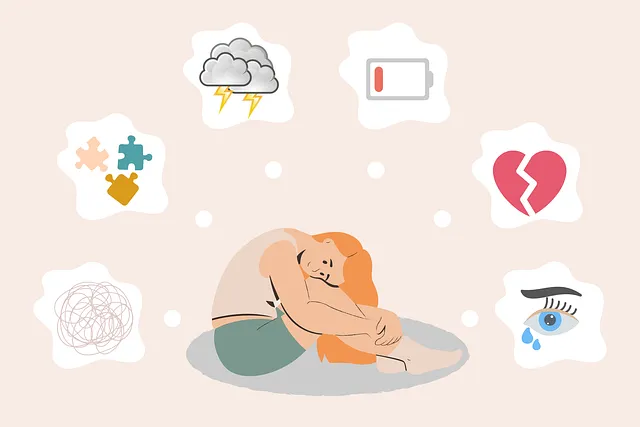Kaiser Permanente's behavioral health services reviews in Golden have significantly reduced the stigma around mental illness by implementing educational initiatives, evidence-based practices, and community outreach programs. They address misinformation through workshops, training for healthcare providers, and patient education materials, encouraging open dialogue about mental health and improving access to care. These efforts contribute to a more accepting society where individuals feel comfortable seeking help without fear of judgment or discrimination.
Mental illness stigma remains a significant barrier to individuals seeking help. This article explores strategies to reduce this stigma, focusing on Kaiser Permanente’s approach through its comprehensive behavioral health services reviews. We delve into how empowering communities and changing societal perceptions can create a more inclusive environment. By examining successful initiatives like Kaiser Permanente’s Golden program, we aim to highlight effective methods for fostering understanding and support for mental health issues.
- Understanding Stigma: Barriers to Seeking Help
- Kaiser Permanente's Approach: Behavioral Health Services Review
- Strategies for Reduction: Empowering Communities and Changing Minds
Understanding Stigma: Barriers to Seeking Help

Stigma surrounding mental illness is a significant barrier to individuals seeking help and support. Many people struggle in silence due to fear of judgment or negative perceptions from their communities. This stigma often stems from misinformation and lacks understanding of what mental health truly entails. As such, it’s crucial for organizations like Kaiser Permanente behavioral health services, as highlighted in reviews, to address these societal misconceptions.
One way to break down barriers is through educational initiatives. The Golden Stress Management Workshops Organization, for instance, offers programs focused on positive thinking and self-care strategies. Similarly, Healthcare Provider Cultural Competency Training equips medical professionals with the skills to offer empathetic, non-judgmental care. By fostering a culture of open dialogue and destigmatizing mental health discussions, these efforts ensure that those in need can access behavioral health services without fear or hesitation.
Kaiser Permanente's Approach: Behavioral Health Services Review

Kaiser Permanente, a leading healthcare provider, has made significant strides in reducing mental illness stigma through its comprehensive Behavioral Health Services reviews. This approach focuses on improving access to care and promoting understanding among both patients and providers. The review process involves an in-depth examination of their behavioral health services, including mental wellness journaling exercises, burnout prevention strategies, and trauma support services. By analyzing these aspects, Kaiser Permanente aims to ensure that its practices align with the latest evidence-based guidelines, fostering a more supportive and non-judgmental environment for individuals seeking help.
Through these reviews, they identify areas where improvements can be made, such as enhancing patient education materials to reduce misconceptions about mental health conditions. By integrating guidance on mental wellness journaling and trauma support services, Kaiser Permanente empowers patients with tools to take an active role in their recovery. This proactive approach not only improves patient outcomes but also encourages open conversations about mental health, ultimately contributing to a more accepting society where individuals feel comfortable seeking the help they need without fear of stigma or discrimination.
Strategies for Reduction: Empowering Communities and Changing Minds

Reducing stigma around mental illness is a multifaceted approach that involves both community engagement and shifting individual perspectives. Kaiser Permanente behavioral health services reviews highlight successful initiatives where organizations like Golden have implemented Community Outreach Programs. These programs bring mental healthcare directly to communities, fostering open dialogue and normalizing conversations about mental well-being. By educating the public on emotional intelligence and promoting understanding of various mental health conditions, these efforts aim to dispel myths and break down barriers.
Moreover, Burnout Prevention Strategies for Healthcare Providers play a crucial role in stigma reduction. Training healthcare professionals in emotional intelligence allows them to offer more empathetic care, reducing potential stigma experienced by patients. Incorporating burnout prevention techniques within healthcare systems ensures that providers can maintain resilience and compassion, ultimately reflecting positively on the overall mental health support offered to communities.
Mental illness stigma reduction is a multifaceted effort that requires community engagement, education, and access to quality care. Kaiser Permanente’s behavioral health services reviews in Golden highlight successful strategies such as empowering communities through awareness campaigns and providing accessible support systems. By learning from these initiatives, we can continue to foster an environment where individuals feel comfortable seeking help without fear of judgment, ultimately improving mental health outcomes for all.






